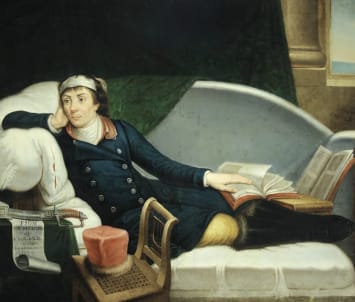The Great Emigration: Fight for Freedom
Paradoxically the tragedy of the partition of the Polish Kingdom (a.k.a. the Polish-Lithuanian Commonwealth) in the 19th century served to build the basis of modern Polish nationhood.

It fostered the growth and popularisation of the Polish language and produced works of literature and art both at home and abroad. For better or worse – through force of circumstances – it also discarded the idea – associated with Józef Piłsudski – of a Democratic Republic of Poland, comprising Poland, Lithuania, Latvia, Belarus and Ukraine, and possibly Romania and Hungary, in a more or less loose federation built on the experience of the Commonwealth, and going back to the history of Poland between the 16th and 18th centuries, as a multi-ethnic state – which had at one time stretched from the Baltic to the Black Sea, and which constantly re-emerges even in modern-day narratives. What instead emerged was closer to the ethnically and linguistically homogeneous nation state. Hitherto blended, Lithuanian and Ukrainian national identity grew more distinctive alongside the Polish struggle for freedom.
The great emigration, which saw some 2000 plus exiles land on British shores during that period bears investigation, although it was not as influential as its French counterpart. After successive brutal repressions, Prince Jerzy Adam Czartoryski is credited with raising the profile of the Polish question through his contacts such as Lord Dudley Stuart. Nevertheless, the make-up of the exiles was young and educated but far from aristocratic. As their chances of return to (occupied) Polish lands receded, and their influence waned, they became embedded if not assimilated into British society. The pantheon of greats includes Joseph Conrad, the Gielgud family including John Gielgud, Frédéric Chopin briefly, Stanisława de Karłowska, Sophie Brzeska and Dame Marie Rambert. Their legacy lives on in the discourses of subsequent emigration as well as the British public.
Text by Professor Jerzy Kolankiewicz

